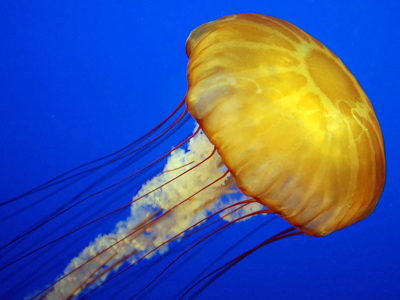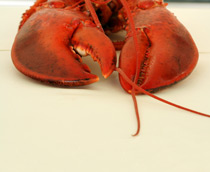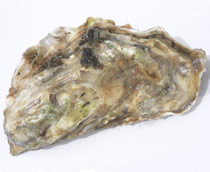
The Sea - Invertebrates
The simplest invertebrates, in fact the simplest animals, are sponges. Sponges feed by siphoning water into their body and filtering out food particles. Most invertebrates change form as they grow, going through a process known as metamorphosis. The caterpillar to butterfly is an obvious example. Some species of invertebrates form large colonies. Marine invertebrate colonies include corals, hydrozoans, Portuguese man-of-war, and sea squirts.
This quiz looks at invertebrates of the sea. If you'd like a closer look, just click on the photo to enlarge it.
- They are sometimes referred to as the chameleon of the sea because of their remarkable ability to rapidly alter their skin colour at will.
- Cuttlefish eyes are among the most developed in the animal kingdom.
- The pupil is a smoothly-curving 'W' shape.
- Its blood is an unusual shade of green-blue.
- The blood is pumped by three separate hearts.
- Octopuses are among the most intelligent and behaviourally flexible of all invertebrates.
- The photo shows an octopus opening a container with a screw cap!
- They have numerous strategies for defending themselves against predators, including the expulsion of ink, the use of camouflage and deimatic displays, their ability to jet quickly through the water and their ability to hide.
- Though octopuses can be difficult to keep in captivity, some people keep them as pets. Octopuses often escape even from supposedly secure tanks, due to their problem-solving skills, mobility and lack of rigid structure.
- Order: Decapoda
- Suborder: Pleocyemata
- Infraorder: Brachyura
- Crabs vary in size from the pea crab, a few millimetres wide, to the Japanese spider crab, with a leg span of up to 4 metres (13 ft)!
- Not all crabs walk sideways - some walk forwards and backwards.
- Some crabs are also capable of swimming.
- In October 2007 a clam, caught off the coast of Iceland, was discovered to be at least 405 years old, and was declared the world's oldest living animal by researchers from Bangor University.
- The word 'clam' has given rise to the metaphor 'clam up', meaning to refuse to talk or answer, based on the clam behaviour of quickly closing its shell when threatened.
- Clams have also inspired the phrase 'happy as a clam', short for 'happy as a clam at high tide'.
- Order: Decapoda
- Suborder: Pleocyemata
- Infraorder: Astacidea
- Family: Nephropidae
- Lobsters have 10 walking legs; the front three pairs bear claws, the first of which are larger than the others.
- They are found in all oceans.
- In the main, they live on their own in crevices or in burrows under rocks.
- A group of oysters is commonly called a bed or oyster reef.
- Some tropical oysters grow on mangrove roots. Low tides expose them, making them easy to collect.
- In the West Indies, tourists are amazed when told that 'oysters grow on trees'.
- Whitstable is noted for oyster farming from beds on the Kentish Flats that have been used since Roman times.
- Most starfish typically have five rays or arms, which radiate from a central disc, however some species can have up to 50 arms.
- On the end of each arm or ray there is a microscopic eye.
- Some species reproduce asexually by fragmentation, often with part of an arm becoming detached and eventually developing into an independent individual starfish!
- Jellyfish are found in every ocean, from the surface to the deep sea.
- They are composed of more than 90% water.
- Most species don't have a brain or central nervous system.
- The box jellyfish has 24 eyes, two of which are capable of seeing colour, and four parallel brains which act in competition.
- It is thought to be one of the only creatures that has a 360 degree view of its environment.
- The external shell is composed of two hinged halves or 'valves'. The valves are joined together on the outside by a ligament, and are closed when necessary by strong internal muscles.
- Mussels are filter feeders; they feed on plankton and other microscopic sea creatures which are free-floating in seawater.
- In Belgium, the Netherlands and France, mussels are consumed with french fries ('moules frites) or bread.
- Order: Ostreoida
- Suborder: Pectinina
- Superfamily: Pectinoidea
- Family: Pectinidae
- Found in all of the world's oceans.
- Unusually, some scallops are male and female; some are both sexes in the same individual and yet others are males when young then change to females.
Ready for more?
not all...
quizzers. Try to win a coveted spot on our Hall of Fame Page.

















